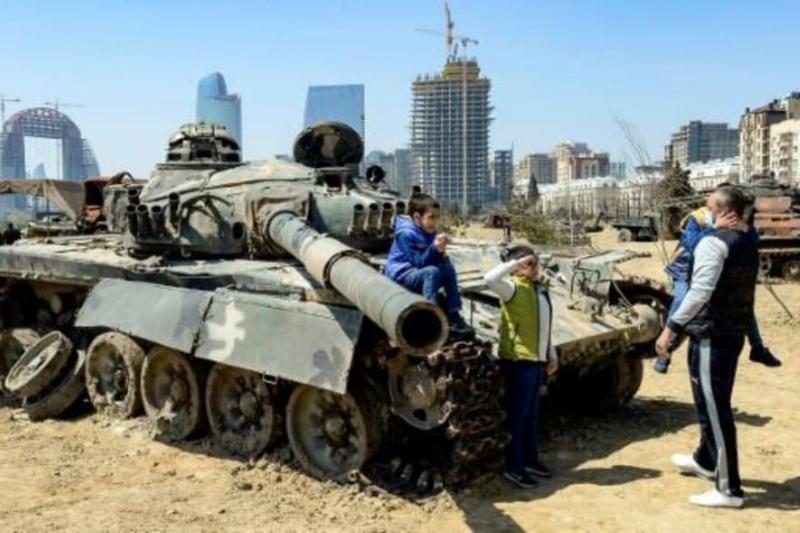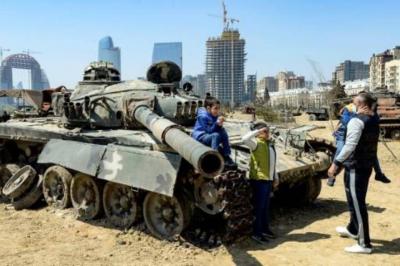Three Armenian soldiers were killed on Wednesday during clashes with Azerbaijani forces along the border between the two countries, marking the deadliest confrontation since the fighting in the disputed Nagorno-Karabakh region ended last year. Tensions have remained high between the two countries since the end of a six-week war that resulted in over 6,500 deaths, leading to a major military defeat for Armenia, which was forced to cede large territories to Azerbaijan under a Moscow-brokered ceasefire.
Regular clashes erupt along the shared border of the former Soviet republics located in the Caucasus, raising fears of renewed conflict. The Armenian Defense Ministry stated that Azerbaijani forces launched an "attack" on its positions, leading to "localized battles" between the two sides. It reported that "as a result of the military operations conducted by the army in response to the Azerbaijani forces' attack, three were killed and two injured on the Armenian side by 08:30 AM (04:30 GMT)," noting that the clash occurred in the northeastern border sector, particularly in the village of Sotk.
Azerbaijan, on its part, reported that two of its soldiers were injured in these clashes, but their lives were not in danger. The Azerbaijani Defense Ministry accused the Armenian forces of "using light weapons and grenade launchers" to target its positions, stating that its units "took necessary measures to neutralize enemy firing points," assuring that the situation was "under control."
Both sides attributed responsibility for this "provocation," which is considered the deadliest since the 2020 conflict between Armenia and Azerbaijan over Nagorno-Karabakh. The Armenian Foreign Ministry accused Azerbaijan of deliberately escalating the situation while its forces remained illegally in territories under Armenian sovereignty. Conversely, the Azerbaijani Defense Ministry held Armenia entirely responsible for escalating tensions along the border, pledging to respond decisively to attacks against the country's territorial integrity.
In another statement, the Azerbaijani Defense Ministry reported that fighting continued, despite Russia, which mediates between the two countries, proposing a ceasefire along the border. Baku accused Armenia of "continuing to escalate the situation and firing on Azerbaijani army positions using tanks and 120 mm mortars." Armenian Prime Minister Nikol Pashinyan, who sought military support from his ally Russia, expressed in May his wish to reach an agreement to resolve border disputes with Azerbaijan "through diplomatic means, not by moving military forces." On the same day, Azerbaijani President Ilham Aliyev stated that "the time has come" to begin peace talks with Armenia, emphasizing that the two countries need to "reduce future risks."
Despite both countries declaring goodwill, the frequency of border clashes has doubled, raising concerns about a resurgence of conflict between them. On July 23, an Azerbaijani soldier was killed and three Armenian soldiers were injured after an exchange of fire, following the death of an Armenian soldier in similar clashes days earlier. In May, Azerbaijani forces captured six Armenian soldiers in a border area between the two countries.




